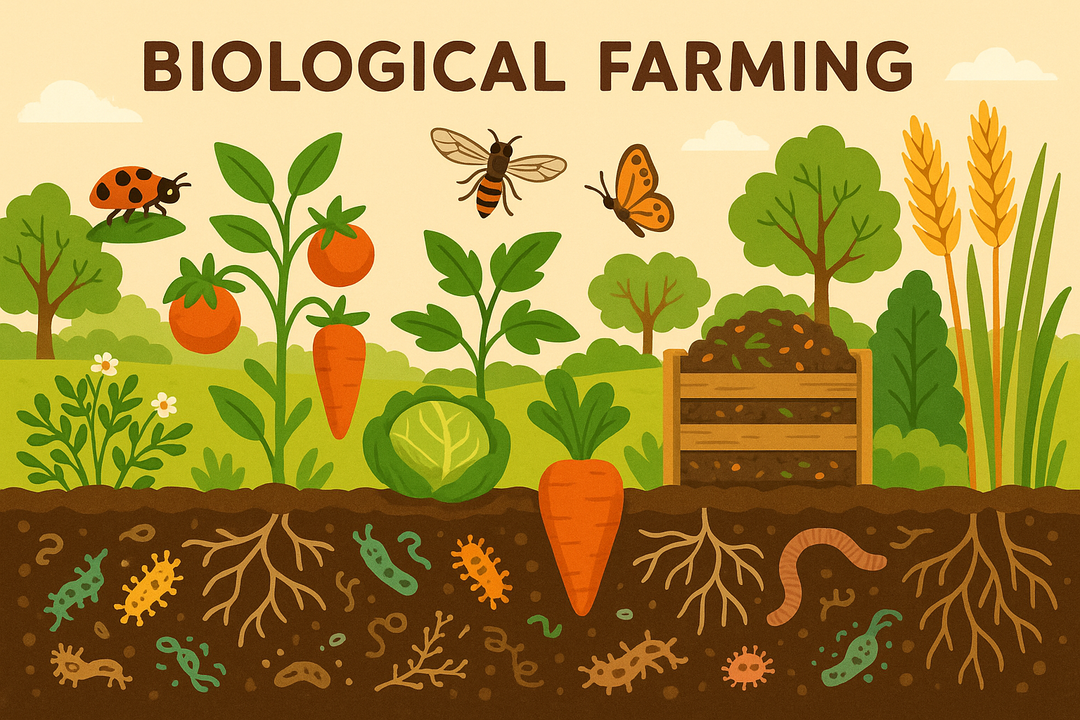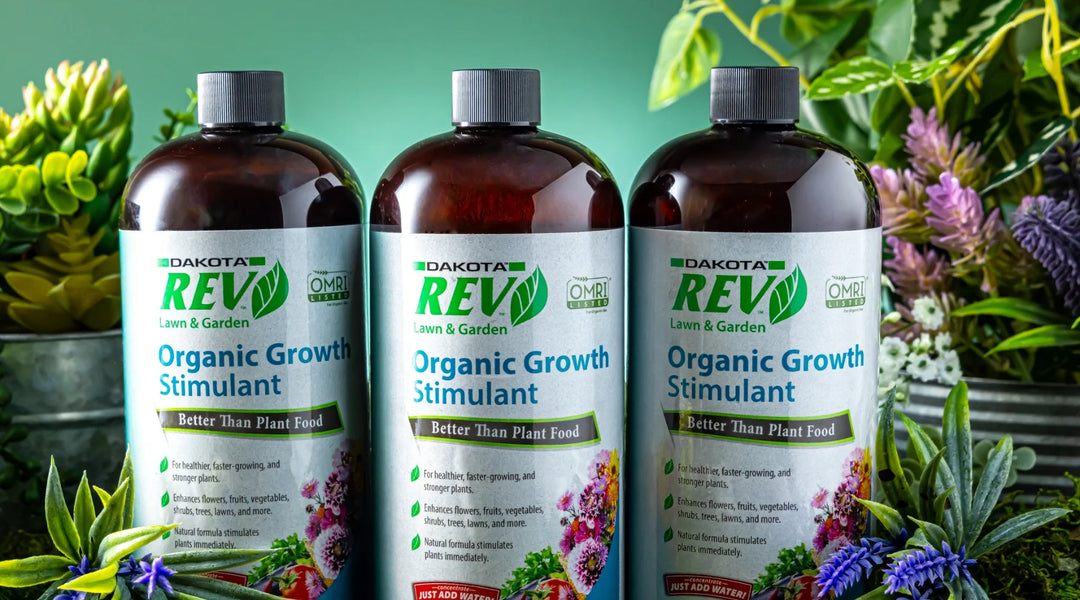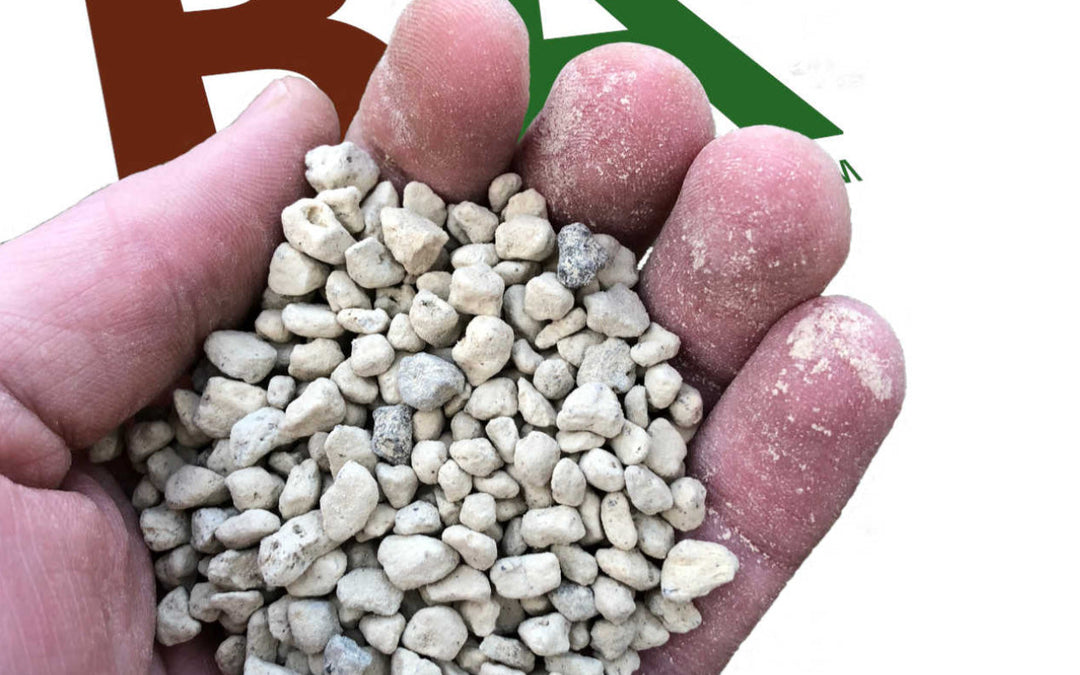What’s In My Fertilizer?
In the vast realm of gardening, the quest for the perfect fertilizer can be compared to a witch mixing her brew in her cauldron, searching for that perfect blend. Adding each element can be a tricky business, with each nutrient boasting different benefits for your plants, soil, and microorganisms.
However, when you finally find the perfect combination, your fertilizer potion will certainly seem enchanted. From lush, green grass growth and gorgeous blooming flowers to fruits and vegetables that boggle your mind, finding the right organic fertilizer is nothing short of magical.
Why is Fertilizer Important?

Fertilizer is the cornerstone of plant nutrition, providing essential elements to aid in plant growth and overall health. In essence, fertilizer helps bolster the nutrients to which your plants may not have access. If plants do not have access to those essential nutrients, they can struggle with basic biological functions and will not meet their full growth potential. Fertilizer also helps plants properly absorb things like weed killer and pesticides without harm.
Additionally, fertilizer plays a pivotal role in addressing nutrient depletion in soil. Continuous farming and harvesting of the same land can leech important vitamins and minerals from the soil, affecting the fertility over time. After years of planting the same types of crops, the soil no longer has what it takes to sustain them. Soil can become too acidic or basic, can resist water absorption, and can harbor harmful bacteria that could make your plants sick. Using organic fertilizer helps replenish some of those essential soil nutrients.
Fertilizers also help gardeners everywhere maximize yields and keep their agricultural systems running smoothly. For those working in local and global food systems, using high-quality organic fertilizer can help protect against potential food and crop shortages. Fertilizer is indispensable for fostering healthy growth, replenishing soil, and ensuring the sustainability of your farming practices.
Why is Organic Fertilizer Best?

Organic fertilizer stands out as the preferred choice for environmentally conscious gardeners and farmers due to its numerous benefits that contribute to both soil health and long-term sustainability. By using organic fertilizer on your lawn and garden, you are protecting your community in ways you might not see. The obvious benefits of organic fertilizer are better crop yields, but below the surface, there’s so much more happening.
Unlike synthetic alternatives, organic fertilizers are derived from natural sources like compost, manure, and other plant-based materials. This organic composition fosters a rich microbial environment in the soil, meaning there’s an entire network of microscopic organisms just below the surface working hard to keep your soil and plants healthy. With a steady supply of organic nutrients, the ecosystem remains balanced and resilient.
Not only is organic fertilizer the best choice in the short term, but it aligns with the principles of sustainable and regenerative agriculture. Conventional farming and the use of synthetic chemical fertilizers often involve energy-intensive manufacturing, harmful business practices, and the potential for damaging chemical runoff. Using organic fertilizers not only helps you, but also farmers and nature lovers around the world by promoting a healthier planet.
Where Does Organic Fertilizer Come From?

There are tons of different elements in fertilizers that each work together to provide the perfect potion of nutrients to your plants. With organic fertilizers, all of these nutrients are derived from natural sources instead of relying on chemicals created in a lab. Some of the most common sources of nutrients for organic fertilizers include:
- Organic compost
- Cattle manure
- Poultry droppings
Since these sources are natural byproducts of many farms, the production of organic fertilizers is much more energy-efficient, cost-effective, and simpler than the production of complicated chemical fertilizers. This contributes to the overall sustainability and eco-friendly nature of organic fertilizers.
Fertilizer Nutrients Explained
Organic fertilizers are like a gourmet feast for plants, offering a rich and diverse menu of nutrients. Picture it as a culinary extravaganza for your plants with ingredients sourced straight from the earth’s pantry. The primary players in organic fertilizers are nitrogen, phosphorus, and potassium – known by their atomic symbols N, P, and K, respectively.
When fertilizers are described, they are done so using their NPK percentages. For example, a 2-20-2 fertilizer would have two percent nitrogen, twenty percent phosphorus, and two percent potassium. Each element has different strengths and weaknesses, and one might choose different organic fertilizer types depending on the current state and future goals of their plants. Though nitrogen, phosphorus, and potassium are the three most important nutrients in most fertilizers, they may also contain other ingredients, such as:
- Sulfur
- Iron
- Zinc
The concentrations of these nutrients are seldom listed on labels because they are not as highly regulated as nitrogen, phosphorus, and potassium. Since organic fertilizers are derived from natural sources, there are dozens of extra vitamins and minerals in their formula to help your plants thrive.
Nitrogen is Essential for Plant Function

Nitrogen plays a pivotal role in organic fertilizers, influencing various physiological processes that contribute to the overall health of the plant. In the realm of organic farming, nitrogen takes center stage as one of the primary nutrients essential for the development of lush foliage and robust vegetative growth. There are a few ways that nitrogen forms a harmonious relationship with soil to make your garden better than ever.
First and foremost, nitrogen is a fundamental component of amino acids, the building blocks of proteins. Proteins are essential for plant structure and help form cell walls, so nitrogen is particularly important in the early growing stages. Nitrogen is also essential in the formation of enzymes. Enzymes are responsible for several different chemical reactions and processes in plants, such as energy transfer and photosynthesis.
Another benefit of nitrogen fertilizer is that it influences hormone regulation in plants, allowing them to allocate resources properly for growth and reproduction. Lush green leaves are a visual testament to the importance of nitrogen because it greatly affects the ability to harness sunlight for photosynthesis. If you see a particularly vibrant green lawn, nitrogen is likely the culprit!
Phosphorus is in Charge
If nitrogen is the center performer, phosphorus is the conductor of the symphony. Phosphorus directs the development of root systems, so it’s responsible for the very beginning of plant life. If phosphorus is not readily available to the plant, root systems will not be as robust and effective as they should be. Phosphorus also facilitates energy transfer, which helps with nutrition allocation. This is another reason why a phosphorus-rich fertilizer may be one of your best choices for seedlings.
Another reason phosphorus is an important player in fertilizer is because it’s one of the keys to photosynthesis. Since photosynthesis is responsible for converting the sun’s rays into plant food, plants cannot survive without phosphorus. Not only does it allow plants to complete the process, but it allows them to do so most efficiently without wasting any excess energy.
Perhaps the most interesting function of phosphorus in plants is that it aids in the replication of cells and the transmission of genetic information. It contributes to the inheritance of traits and, thus, the perpetuation of healthy, vigorous plant populations.
Protective Potassium
Potassium, the third and final component of NPK, emerges as the guardian of the plant. Potassium contributes to the resilience of plants, helping them endure common hardships that crops may encounter. Found most commonly in materials like wood ash or compost, potassium plays a multifaceted role in supporting plants from their earliest stages of development through to the final harvest.
At the forefront, potassium is instrumental in regulating water uptake and retention, making it ideal for drought-resistant seed blends and plants. Without that regulation, plants may not have the ability to weather excess rains or droughts. There is an optimal amount of water to be taken up by roots at any given time, and potassium helps plants determine that level. During environmental fluctuations, potassium ensures that there’s enough water stored to appropriately face those challenges.
Potassium’s role in plant stress resistance extends beyond water management. Potassium-rich organic fertilizers empower plants to fortify themselves against other environmental dangers, including pests and disease. Think of potassium as the plant’s superhero shield, activating defense mechanisms that ward off harmful pathogens. This resilience is particularly important in organic farming because it promotes natural pest control and can help eliminate the use of synthetic pesticides and herbicides.
Which Fertilizer is Best for Me?
Selecting the best organic fertilizer for your gardening needs depends on various factors, including:
- Specific plant requirements
- Convenience of application
- Personal preferences
Using the information above to choose the right nutrients in your fertilizer is easy. If you’re hoping to help young plants, a phosphorus-rich fertilizer might be best. A nitrogen-rich fertilizer is a great option if you don’t anticipate tons of problems but just want robust, healthy crops. Finally, a potassium-rich fertilizer is the best choice for those who live in areas without consistent water availability and rainfall. Whether your area is prone to droughts or experiences lots of storms and flooding, potassium can help your plants regulate.
Choosing the application type for your fertilizer is another important factor. Many varieties come in powder form or liquid fertilizer, and your choice of application is truly up to you. There are pros and cons to both powder and liquid fertilizer, but oftentimes, liquid fertilizer stands out as a versatile and efficient choice.
Why Choose Liquid Fertilizer?
Liquid fertilizers offer a dynamic solution that caters to the immediate nutritional needs of your plants, all while having a convenient application process. The ability to target liquid fertilizers to very specific areas is a draw that some people love. Another big benefit to these fertilizers is their ability to be rapidly absorbed by plant roots, ensuring speedy delivery of nitrogen, phosphorus, and potassium. This is particularly beneficial during fruiting and flowering periods because plants need an extra boost of things like fulvic acid for growth and calcium for veggie development.

Using liquid fertilizer allows for foliar feeding, which is where you apply nutrients directly onto the leaves of the plants instead of targeting just the roots. Foliar feeding is a plant lifesaver when you start to notice signs of certain nutrient deficiencies. For example, if you notice your crops are yellowing, that’s a sign that they may need a foliar application of liquid fertilizer with lots of nitrogen. The same goes for droopy plants - a quick foliar application of potassium-rich fertilizer in liquid form can perk them right up.
With liquid fertilizer, you also have the ability to tailor the concentrations to your needs. Powder fertilizers on their own are great, but controlling how much your plants get can be tricky. Fortunately, liquid fertilizers take out some of the guesswork and help you provide the perfect amount of nitrogen, phosphorus, and potassium.
Applying Powder and Liquid Fertilizer
One of the benefits of applying powder fertilizer is that it’s pretty straightforward. Always wear appropriate protective gear, choose a calm, dry day, and simply distribute the powder as evenly as you can around the base of the plants. Once applied, lightly rake the soil to incorporate, and you’re good to go.
The application of liquid fertilizer takes a bit more prep work, but it’s worth it. The most common application of this type of fertilizer is through dilution and watering. Dilution ratios for your fertilizer will always come with your product if purchased through Rocky Mountain BioAg ®, so your calculations are handy whenever you need them. For root application, try using a watering can or a drip irrigation system to deliver the diluted liquid fertilizer directly to the soil.
For foliar application of liquid fertilizer, you might want to use a sprayer that attaches directly to your hose to ensure easy application. Choose a calm day to prevent drifting, and try to apply your wet fertilizer in the morning or evening when temperatures are cooler. Consistency is key, and regular application of your liquid fertilizer according to the manufacturer’s directions will help sustain your crops and offer a fruitful, healthy harvest.
Success with Organic Fertilizers
In the enchanting world of organic gardening, fertilizer is like a magical potion that can transform your garden into a thriving masterpiece. Whether you’re hoping to see extra fruit or flowers this harvest season, or you need to ward off pesky diseases like tomato rot or bacterial wilt, choosing the right type of fertilizer and understanding their nutrients is the key to the success of your garden. From nitrogen-rich varieties to ones with tons of potassium, the best organic fertilizer is the one that helps you fulfill your lawn care and garden dreams.











Leave a comment